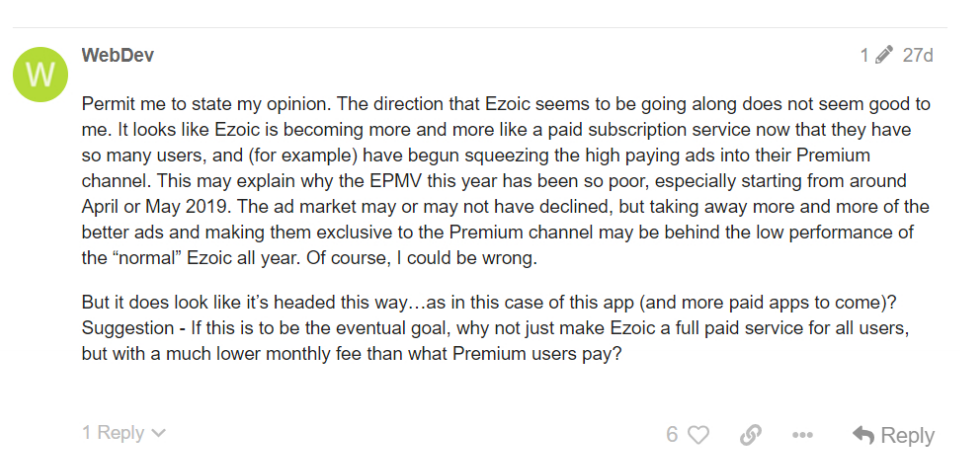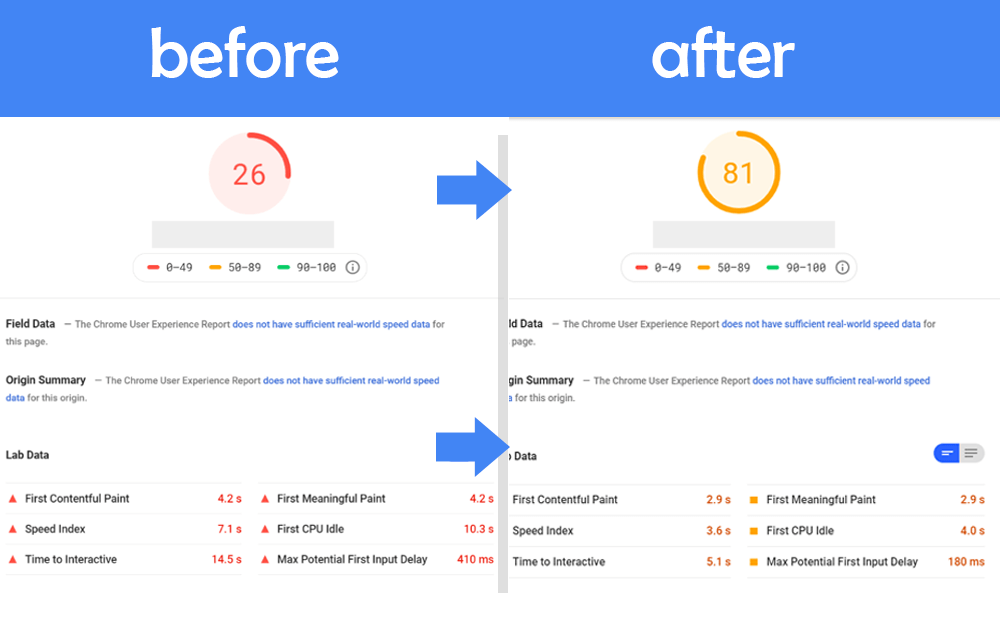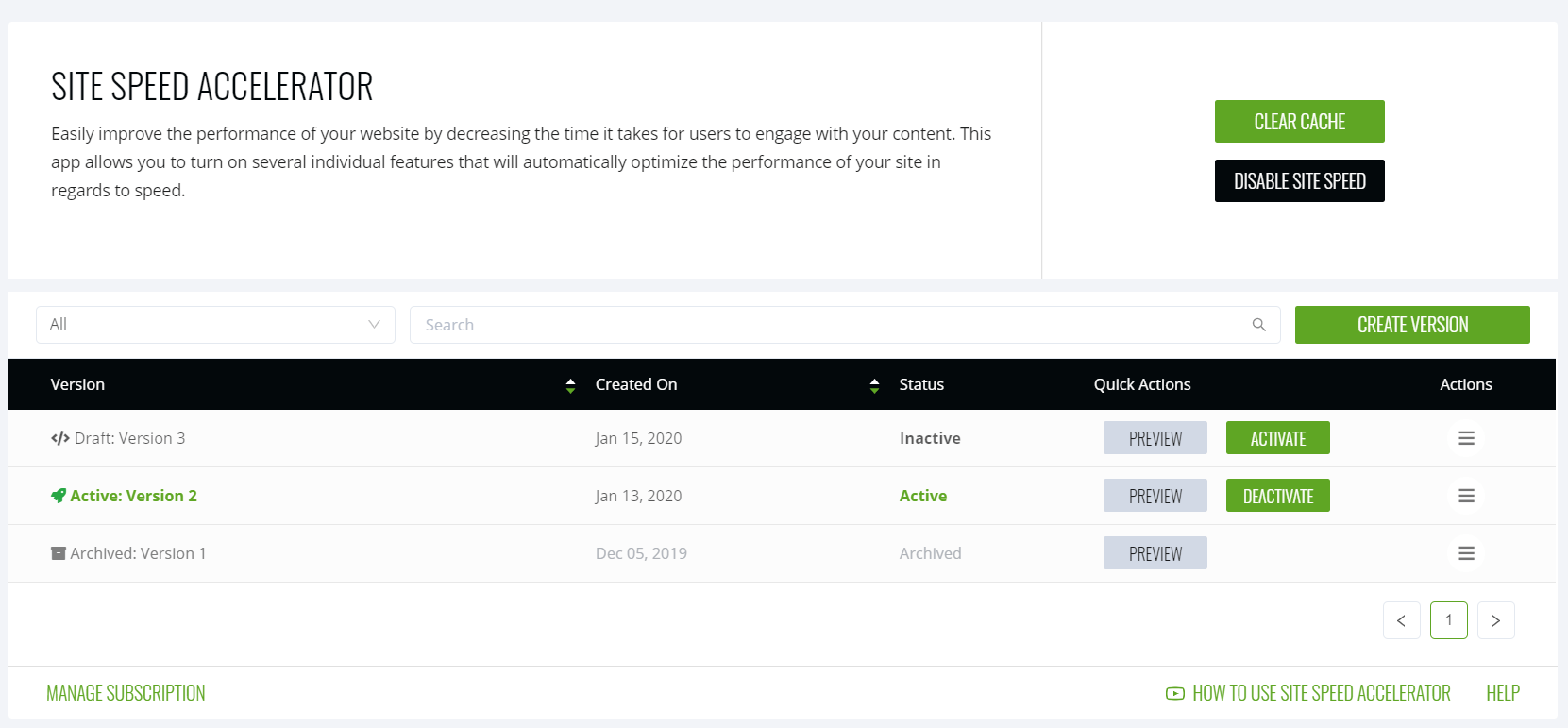Ezoic is one of the largest ad testing platforms in the world. Recently they have made big waves in the publishing world with their newest speed accelerator that guarantees a mobile PageSpeed score on Google of 80+ with just a click on a button.
With a guarantee that seemed almost too good to be true so, I was excited to test it. The initial setup was easy and had many features and settings, but one thing is certain Ezoic has never been known for fast loading sites.
So did something change? Did Ezoic come up with a magic tool that can take your Google PageSpeed Insights from low 20’s to 80+ with just a click of a button?
They certainly appear to have done so with hundreds of websites implemented and hundreds of reviews, but how is this even possible?
I had a theory that Ezoic had created a way to bypass Google PageSpeed tester. After analyzing their results, I do believe they are manipulating these speed results. Here’s why.
Then I had a prospect contact us through the site that was wondering how I could help them make more from their website. They were currently an Ezoic customer earning only a few hundred dollars a month. They asked me if I thought the Speed Accelerator was really worth it. So I asked if I could run a test for them.
My tests resulted in all of the following results just turning on the Ezoic Site Accelerator:
- Google Search Console showed website loading much slower
- Google Lighthouse (for developers) showed reduce performance scores
- Google Analytics Site Speed showed loading Averages increase
- GTMetrix was not displaying all my files or images in its score
- Pingdom Site Speed showed no improvements
So how does Ezoic page speed accelerator improve your page speed score so dramatically, but not impact any of these other reliable indicators?
1. What is the Ezoic Speed Accelerator?
Site speed plays a crucial role in your website in so many ways. It impacts user experience, revenues and bounce rates. But most importantly is a huge SEO ranking factor for Google. This is why Google PageSpeed Indicator is such a reliable metric for publishers and is commonly used in our industry.
There are a lot of reasons why your site may be loading slow. Ezoic Speed Accelerator is advertised as a fix for all of this. Ezoic claims that the benefits of this are:
- Solving Google Page Speed Issues – By eliminating render-blocking javascript, removing unused CSS & third party cookies, and deferring off screen images are able to reduce server response time and increasing the page speed score to their guaranteed score of 80+ on mobile.
- Instantly Optimize Images – This feature is pretty cool (very similar to WP-Rocket or wp-Smush) automatically sizes and compresses images serving in next level and lazy loading formats.
- New powerful control features – There are many new preset options, choices, and selected features and rules that you can now control from their platform.
Essentially Ezoic claims to be using a super-fast CDN, with smart caching and image optimization features that provide proprietary script loading features that makes your website load faster. Got it?
2. How Much Does Ezoic Charge for this feature?
One thing about Ezoic, is they do not shy away from charging for their services. Many publishers in their own forum were unhappy about how they brought it out. They were not upfront about the fees.
In December it was not deemed as a free trial, I thought it was a new feature. A bit later, the free trial and pricing model was introduced. Their pricing model starts at $19.99 for clients and works its way up to hundreds. For example a site with 50k visitors will pay $40 a month for this feature.
This had shocked a lot of Ezoic’s own community, with comments similar to WebDev here about the way they brought in the paid subscriptions of both Ezoic Premium & Site Speed Accelerator. Many people do believe that these services should be included in the service commissions they are already charging.
3. Does Ezoic Work With All Websites?
One of the best features about the Speed Accelerator is that it works with many different types of websites.
It can even be used as a stand alone product if you are not an Ezoic customer. I have used it with WordPress but they claim it works with Drupal, Shopify, Joola, Squarespace, Magento, and many more. If you have tested with any of these other platforms, please leave your comments below.
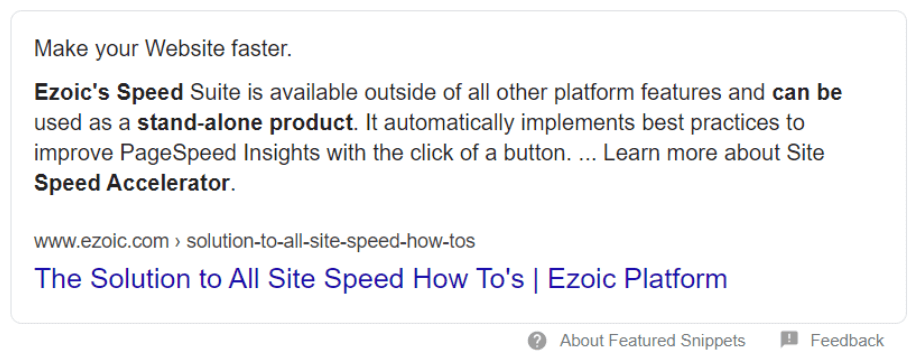
4. Did the website reach the Guaranteed speed?
Yes! Shortly after installing the Site Speed Accelerator it managed to increase my page speed score from 29-80 without doing anything. It was literally just a few clicks of the button. Here is a screenshot of my before and after.
Imagine the euphoria of testing your website to see such a huge increase immediately. Now, the client is not an optimization rookie and does use WP Rocket and Cloudflare (with no CDN), but was blown away with the results.
However, I started to get suspicious when logging in from incognito and working on the site a bit afterwards. I felt that they were not loading any faster and it was actually hindering the performance.
How could this be true if their mobile and desktop PageSpeed Insights increased by so much? So I did some testing, keep reading to see why I am super skeptical.
5. Why did the Site Speed In Search Console Decrease?
Google search Console (GSC) is probably the best measure of the speed of a website and Ezoic failed the test. The below test is limited to 3 months history, as much as Search Console makes available. This website was with Ezoic the entire time, but from the day we turned on the speed accelerator our 734 pages indexed all moved to slow url section. Before it was roughly 50/ 50, and when it was turned off, it went back to this.
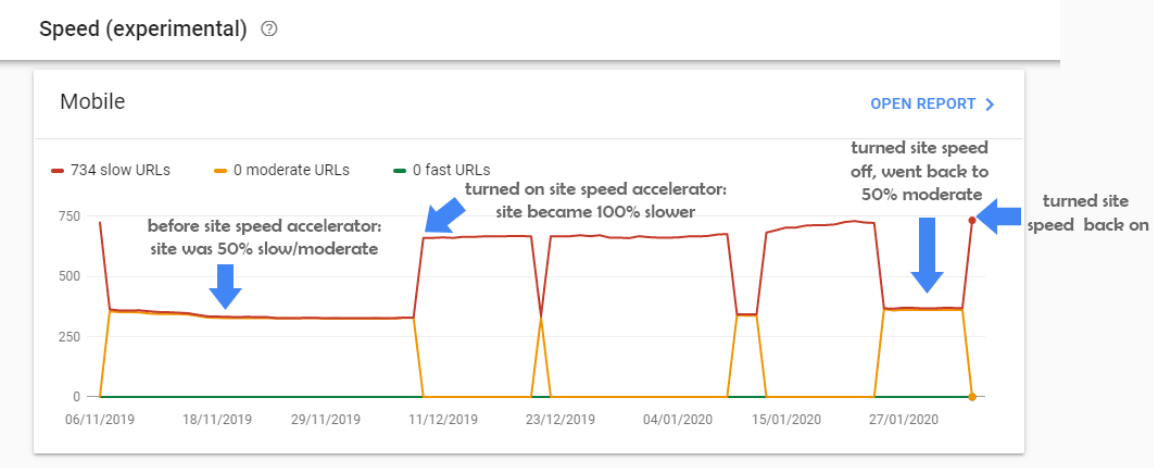
December 5th was when we first turned on Site Accelerator, and was shocked to see that in Search Console Speed section actually decreased. The GSC report is is an extremely high bar for sites serving an international audience and on WordPress is very tough to do without using some sort of HTML edge cachin
The client was shocked to see that the when they looked at their experiment after turning the ads on, it actually moved all of the pages to slow when they were fast before. It is a wordpress site, on VPS hosting, that loaded fast before when it was on AdSense.
If this tool worked correctly, should it not speed up the result? As you can see it was just after December 5th when they subscribed to it. We do know that ads slow down a website but is Ezoic not supposed to have the opposite effect?
6. Why did My Google Analytics Site Speed Slow Down?
The results from the Google Analytics “average speed time” was very similar to what happened in Search Console above. Despite adding the Site Speed Accelerator on the 5th it actually increased the average load time slowing down performance. I understand how it fluctuates, but it was very consistent in the timing after as well.
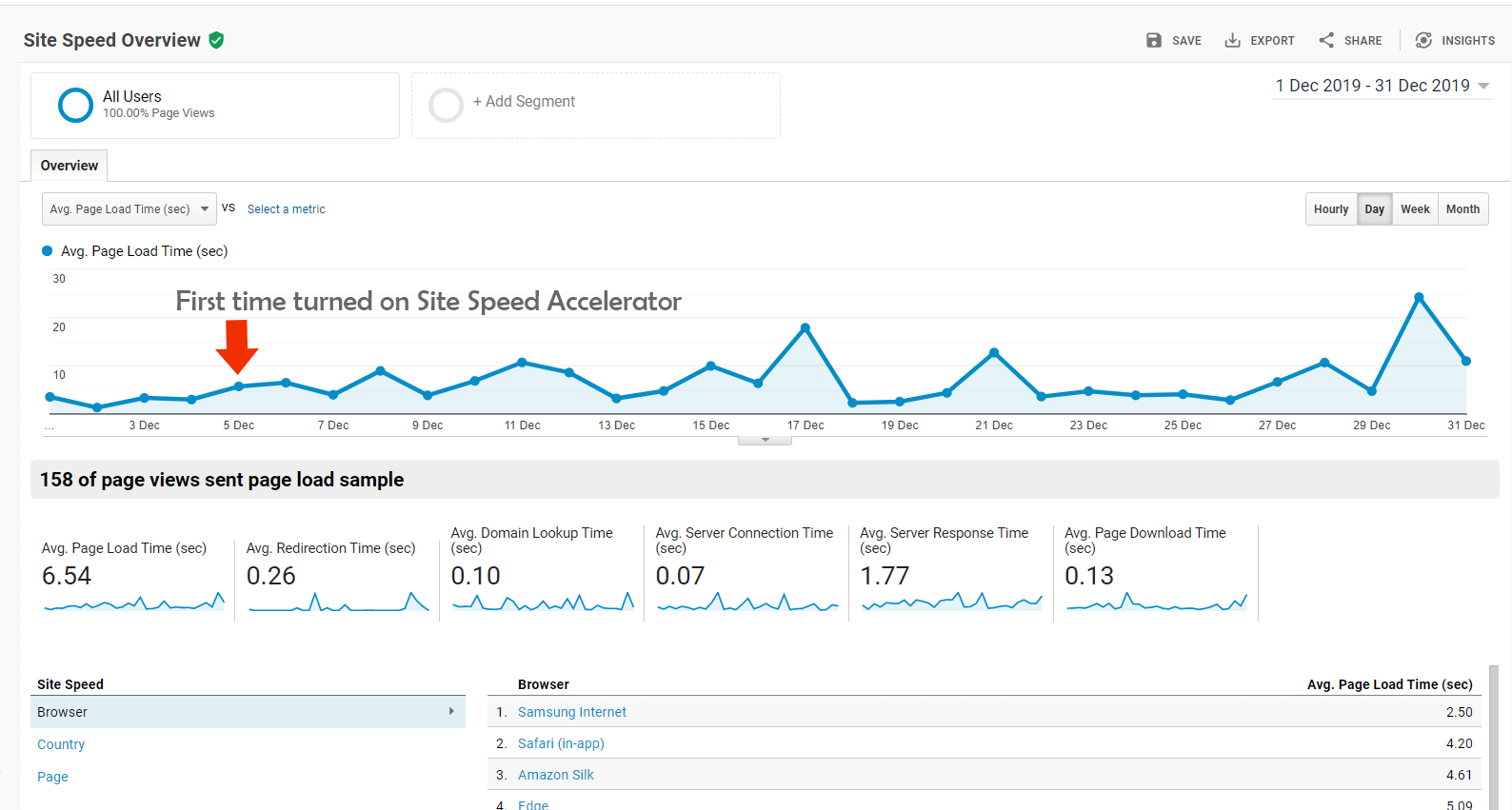
7. Why Does GT Metric Not Display Any Images?
I wanted to see how my page speed scores matched up to the GTmetrix. Well good news is that the report increased greatly, bad news is that it now no longer shows the actual images loading and onlys loads a fraction of the website files. This showed 1.95 MB loading prior and only 435 KB loading with the speed accelerator. Where did the other 78% of files mysteriously go?
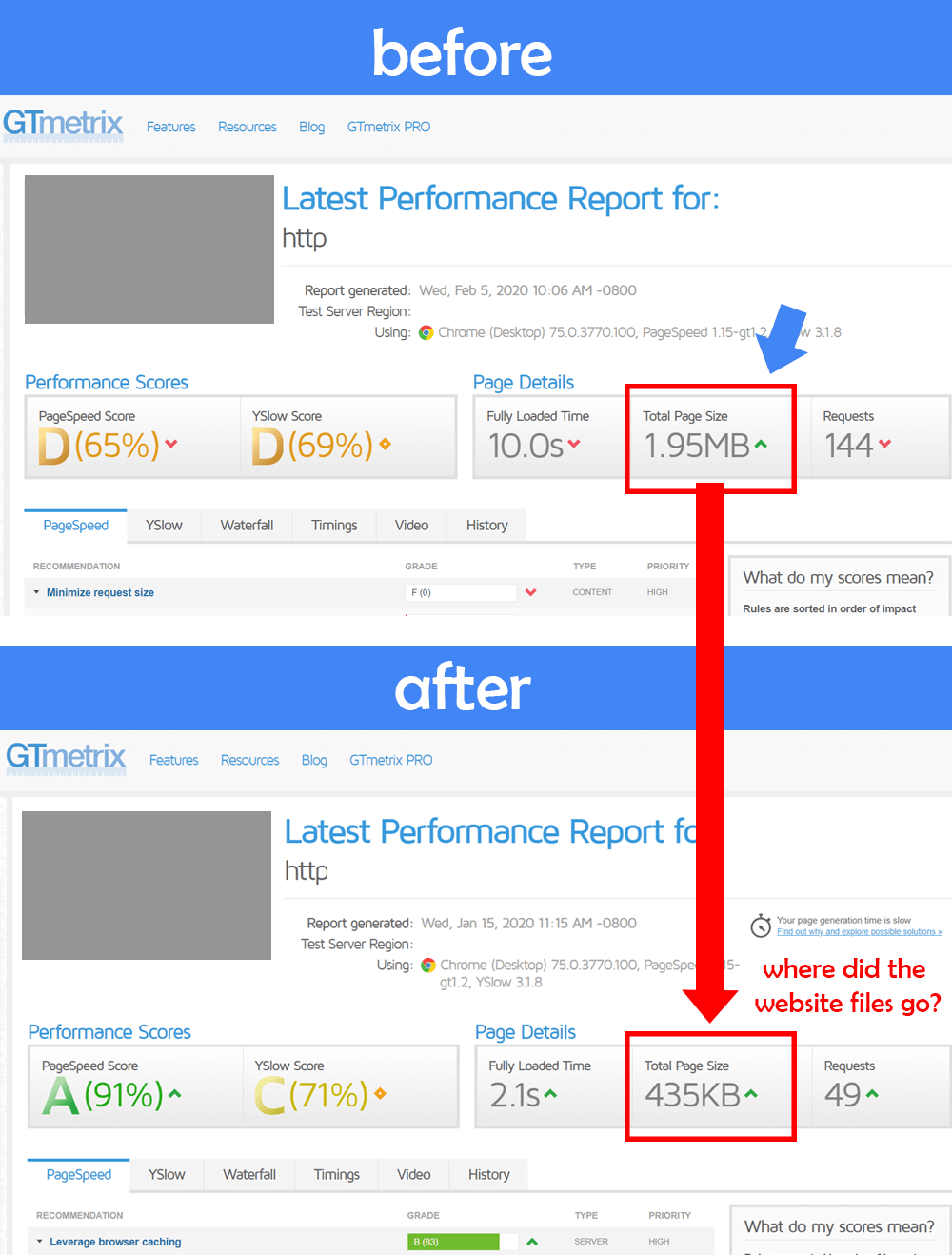
I hope you can now see what I am leading too ? GT Metrix always does show a higher load time then other testing tools, so do not think that the 10 seconds is how long customers have to actually wait to see anything.
8. My Pingdom Score Did Not Change
Pingdom is one of the best known website speed tests. They use many of the same contributing factors in their grade as Google PageSpeed insights.
I have used them as a guide for many years, as they test from their 4 main locations. On all tests, I was surprised to see such little change in performance and load time from the tests.

9. Site was slower on their own Ezoic Speed Test
I admit this was the speed accelerator test that shocked me the most with using Ezoics own Speed Tester. Turning on the Speed Accelerator actually lowered the website’s performance for both on Mobile and Desktop. We are not even using a CDN in the before test, but still outperformed the speed accelerator.
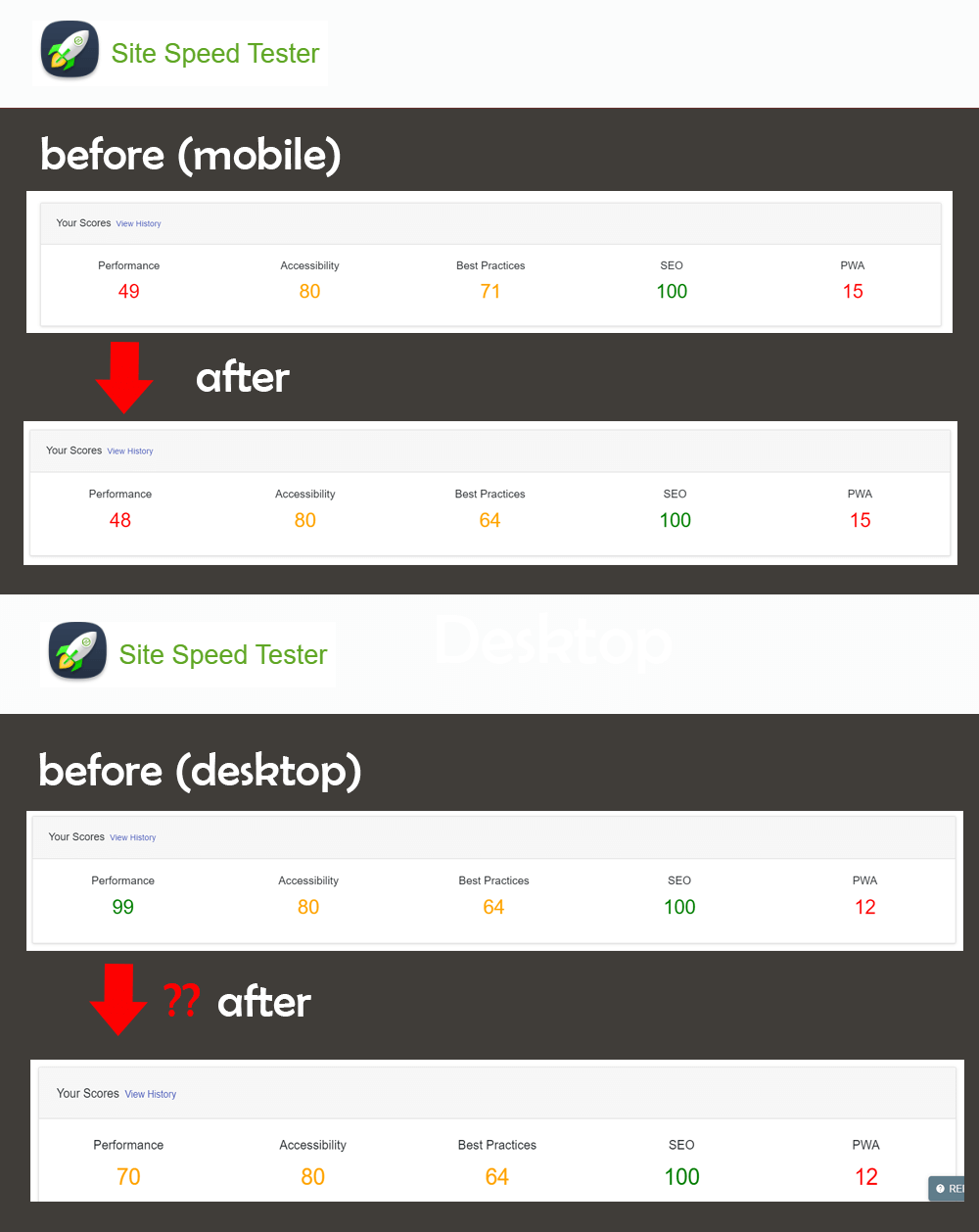
10. Lightspeed Results Actually Went Down
Google Lighthouse is an open-source, automated tool for developers to help improve the quality of web pages you are working on. You can run Lighthouse in Chrome DevTools, from the command line, or as a Node module. Much like PageSpeed, it has audits for performance, accessibility, progressive web apps and SEO..
Lighthouse is designed to test your website page in your local browser (unlike PageSpeed). It will usually show you a much more horrible score compared to Google PageSpeed.
This was apparent in the testing that we scored much higher without the site speed accelerator, when running it on your actual browser that is far more of an accurate testing factor with site speed.
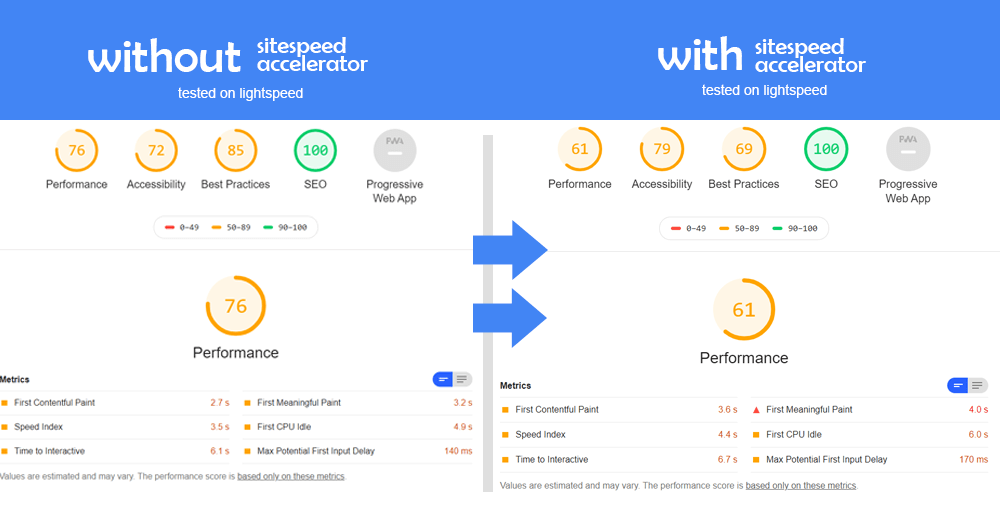
Conclusion & Editors Comments
Now that you have reached the end of the article and seen the results of all of my tests, what do you think is my real opinion on the Site Accelerator by Ezoic or what I am implying?
It is important to understand that Google PageSpeed insights does not actually account for the “actual” loading time and is based on having only one CSS file. For anyone using WordPress you most likely have multiple CSS files unlike a basic HTML or PHP website.
Plus Google “PageSpeed” is actually testing in 3G speed. I personally have not used 3G for years.
There is no doubt that Ezoic has created some amazing software with many different features.
However, I do worry about how they can guarantee a page speed of 80 but every single other test I did besides the page speed score, there was worsened performance or no change at all.
With a normal caching plugin like WProcket, an image optimization plugin like WPSmush, and with a free version of cloudflare, you can obtain very similar if not better results in the Ezoic Speed Accelerator. Here’s 9 actionable ways to speed up your website.
Are you currently using Ezoic Speed Accelerator and want us to test your real speed? Leave your comments (good or bad).



